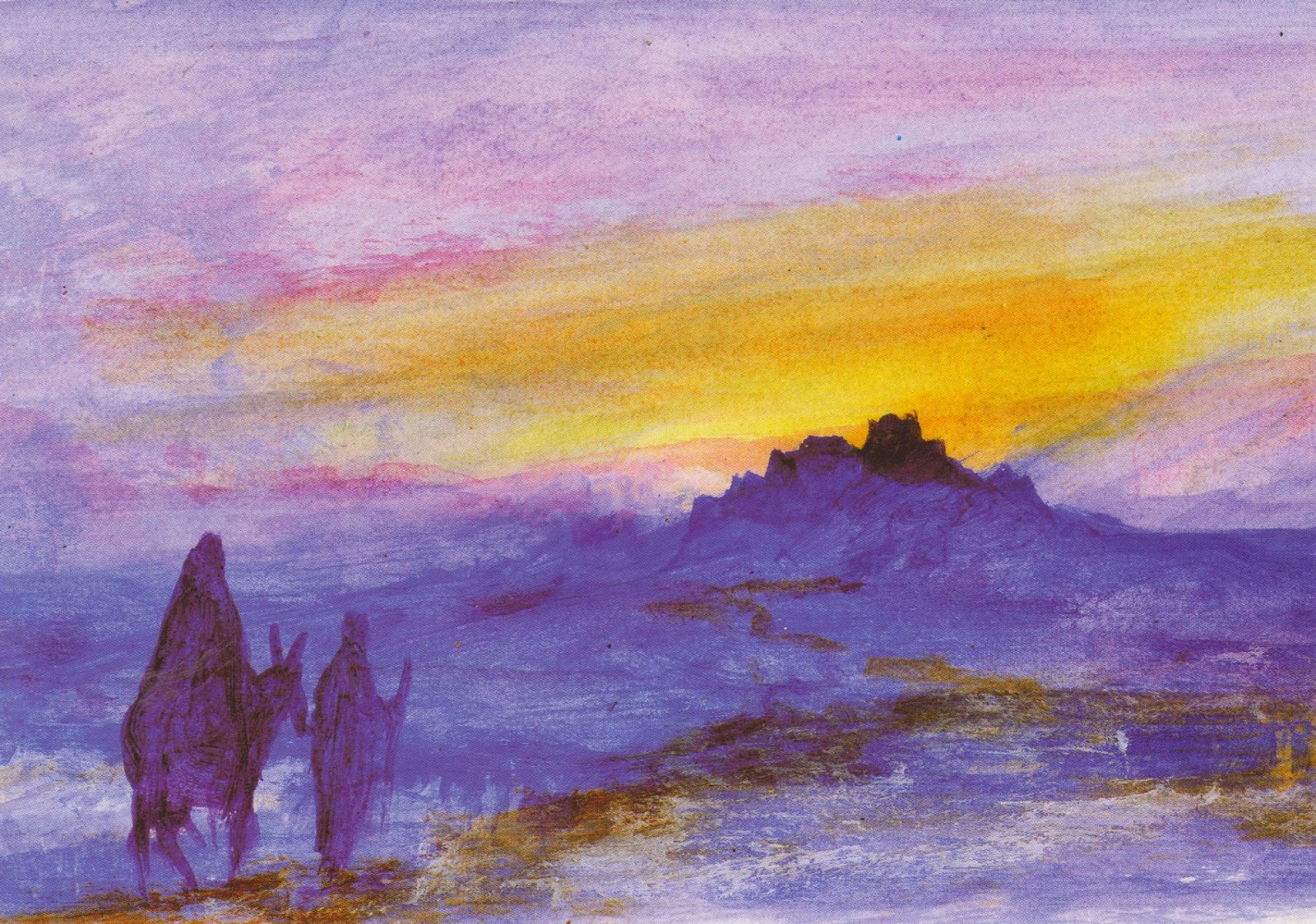Holy Nights
John 21: 15-25
After they had had held their meal together, Jesus
said to Simon Peter: “Simon, son of John, do you love me more than the others
here?
Peter answered, “Lord you know that I am your friend”.
Jesus said to him, “Feed my lambs.”
Peter answered, “Yes, Lord, you know that I am devoted to
you.”
Jesus said to him, “Shepherd my young sheep.”
He asked him a third time, “Simon, Son of John, Are
you my friend?”
Peter was heartbroken that he could say to him the
third time, ‘Are you my friend’, and he answered, “Lord, you know all things;
therefore you know that I am devoted to you.”
Jesus said, “Feed my sheep. Amen the truth I say to
you, when you were younger you girded yourself and walked wherever you wished.
But when you are old, you will stretch out your hands and Another will gird you
and lead you where you do not wish to go.”
He told him this to indicate the kind of death by
which he would bring the divine to revelation. Then he said to him, “Follow
me.”
But Peter, turning, saw the disciple whom Jesus
loved, following him. He was the one who had leaned upon his breast at the
supper and had asked, “Lord, who is it who betrays you?” When Peter now saw him, his asked, “Lord,
what of this man, what is his task?”
Jesus said to him: If is my will that he remain
until my coming, that does not affect your path. Follow me…”
From this day the story spread among the brethren
that this disciple would not die. But Jesus did not say to him that he would
not die, but, “If it is my will that he remain until my coming, that does not
affect your path.”
This is the disciple who here bears witness to
these things and who has written all this. And we know that his testimony is
true. There are also many other things that
Jesus did. If they were to be written down one by one, I do not think
that the world itself could contain the books that would have to be written.
Holy Nights
John 21:15-25
“When you were younger, you
girded yourself and walked wherever you wished. But when you are old you will
stretch out your hands and another will gird you and lead you where you do not
wish to go.” John 21:18
These words of Christ to Peter sum up an archetypal pattern
in human lives:
there are periods when we are called upon to exercise an active
will; and there are other times when we are subject to greater forces of
destiny, beyond our control. These two poles, active self will, and being
subject to outside forces, are two strands that run through our entire lives.
It is our human task to find a balance and meaning between these strands—to
exercise our freedom to choose and to do where we can, and to accept the
greater forces of destiny where we must.
 |
| Tree of Life |
Today’s reading is taken from an episode that occurs after
Christ’s life, death and resurrection. His own life and death are an archetypal
image of how we can work with the two strands. In the beginning and middle of
His life, he worked tirelessly at His mission of teaching and healing. He
worked and prayed to His Father, in order to manifest His Father’s light and
love on the earth. And when the time
came for Him to be subject unto death, He again asks for His Father’s help.
Christ, the Son of God, asks in humble surrender—not my will, but Thine be
done. Matthew 26:42, Luke 22:42
His entire life, both in the outwardly active times, and in
times of submission, was centered on bringing the divine, the Father’s will,
into revelation on earth.
This is indeed the true purpose of our human lives—to bring
the Glory of God, the Father’s radiant good will in the heights, down into revelation
on the earth. We pray this in the lines that Christ taught us to pray—Your will
be done on earth as it is in the heavens. Matthew
6:10 Our uniting
with the will of the Father is what cleanses our own will of its potential
egotism. Receiving our will from the divine realms ensures that it is good
will, will devoted to the good of the earth and mankind. Uniting our will with
the Christ’s will, devoted to supporting others, is what brings peace onto the
earth.













